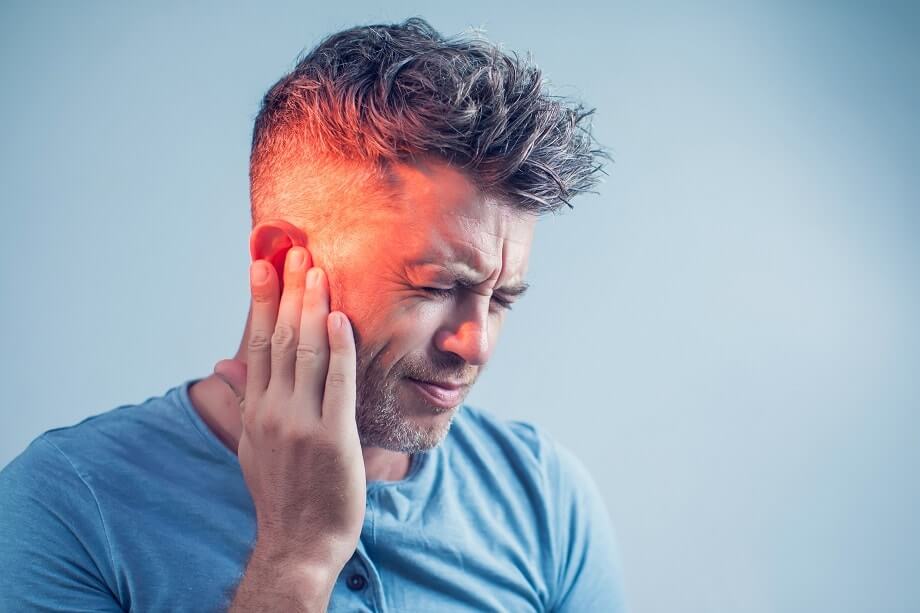Hearing aids are often prescribed by audiologists for patients who suffer with tinnitus that is associated with hearing loss. Evidence suggests that hearing aids help a person’s brain to receive more natural stimulation from the sounds and conversation going on around them; this helps to provide a masking effect for the tinnitus, allowing the hearing aid wearer to hear what they are supposed to be hearing rather than the ringing or buzzing sensation that they are used to.
What is Tinnitus?
Despite being commonly thought of as an individual condition, tinnitus is actually not a disease nor an illness; it is a symptom generated when a problem occurs in the auditory system. Anyone who has experienced tinnitus (a word derived from the Latin for ‘ringing’) will know the tell-tale ringing, buzzing, roaring or clicking noises that can be heard, all with no external source. For some people, tinnitus symptoms can come and go, but those with more persistent tinnitus may also experience other symptoms such as sleep disturbances or stress-induced anxiety. Tinnitus is thought to affect around 10% of the population; it can begin at any age and is often left untreated for prolonged periods of time because of the common belief that nothing can be done to help alleviate tinnitus or its associated symptoms.
The causes of tinnitus aren’t yet fully understood but the symptoms can be triggered by many things including hearing loss, other conditions of the ear, loud noises, your brain being unable to control your reaction to specific sounds, other medical conditions and certain medications.
How can hearing aids help?
There is no single known cure for tinnitus but hearing aids have been proven to help reduce the symptoms. The majority of people with tinnitus will also be suffering from some degree of hearing loss; the aim of hearing aids is to reduce the impact of hearing loss for these people, which in turn can help to relieve their tinnitus.
The latest hearing technology helps to reduce your awareness of tinnitus by subtly amplifying environmental sounds, allowing the brain to focus more on the sounds that you want to hear rather than the ringing or buzzing noise of your tinnitus. Introducing hearing aids to someone that suffers with tinnitus can significantly improve their overall quality of life. It can take a few weeks to adapt to wearing hearing aids and become re-accustomed to the normal levels of sound, but once this period of adjustment is over, wearing the hearing aids on a daily basis will become second nature. Over time people often become less aware of their tinnitus and more aware of the sounds around them, all because their hearing loss has been addressed. So as you can see, despite not being a complete cure, hearing aids can be one of the most effective treatments for tinnitus!
What to do next?
Tinnitus or hearing loss can be picked up by one of our expert THCP audiologists during a free hearing assessment. If you do have hearing loss alongside tinnitus, you may be advised to use hearing aids to help relieve your hearing loss. Many of the newest hearing aids also have the option of adding an additional tinnitus relief setting; this is a form of Sound Enrichment Therapy and provides an external sound source, such as white noise to mask the ringing in your ears, offering a quick release from the symptoms of tinnitus.
All of these options can be discussed in your tinnitus consultation – the first step is to talk about it. You can reach out to a loved one or visit one of our friendly THCP audiologists to start your journey to better hearing. Just book an appointment online or call your nearest THCP branch today.

